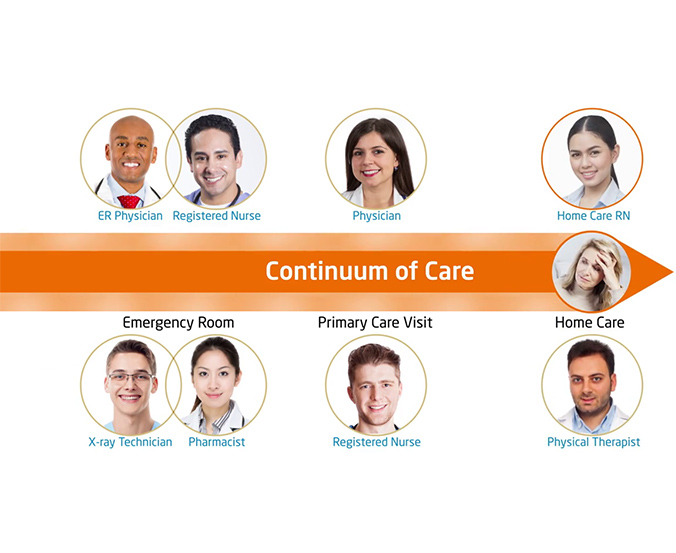Category: IPE
Implementing IPE Doesn’t Have to Be a Struggle
Education Management Solutions
July 25, 2017
Interprofessional education (IPE) encourages collaboration among medical and healthcare learners – medical, nursing, pharmacy, physical therapy, social work, and many others. It develops skills through simulation and experiential learning, allowing participants to gain a deeper understanding of each team member’s ...
Read More →
5 Reasons Nurses Must Excel at Interprofessional Collaboration
Education Management Solutions
June 19, 2017
Interprofessional collaboration encourages healthcare professionals of all disciplines to work together in patient-centered care. For nurses, interprofessional education (IPE) may begin in school, with educational opportunities for intentionally designed interactions with students of other disciplines. These core IPE competencies help prepare ...
Read More →
Integrating Interprofessional Education in Today’s Medical Schools
Education Management Solutions
June 13, 2017
In today’s healthcare workplaces, interprofessional patient care isn’t the exception – it’s the new norm. Whether practicing in a hospital, clinic, or primary care office, medical professionals work side-by-side with a multitude of other healthcare disciplines, including nurses, physician’s assistants, ...
Read More →
Meeting New Accreditation Requirements with Interprofessional Education
Education Management Solutions
June 5, 2017
IPE (interprofessional education) enhances communication and collaboration across diverse healthcare teams, including representatives from medicine, nursing, pharmacy, social work, behavioral health, law enforcement, and more. More and more institutions are looking to IPE to collectively prepare their learners for real-life care delivery, ...
Read More →
6 Benefits of Interprofessional Collaboration
Education Management Solutions
May 22, 2017
Interprofessional collaboration – medical and healthcare professionals working in conjunction to treat patients – provides benefits for both the patients and the professionals. Explore six of these benefits and learn how interprofessional collaboration leads to better patient outcomes. 1. It ...
Read More →
What Is Interprofessional Education?
Education Management Solutions
May 16, 2017
Interprofessional education (IPE) is gaining traction in medical and healthcare institutions, reflecting advancements in training technology and a new emphasis on collaboration. Interprofessional education encourages collaboration among medical and healthcare learners – medical, nursing, pharmacy, physical therapy, social work and ...
Read More →






